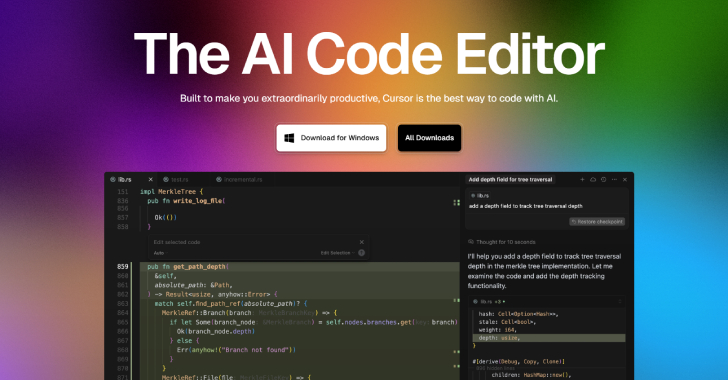
Why is AI Integration for Applications Important?
Artificial Intelligence (AI) has rapidly evolved from a buzzword to a transformative technology that is revolutionizing industries across the globe. One of the key drivers behind this transformation is the integration of AI into various applications and systems. This integration is not merely a trend but a strategic imperative for businesses and organizations seeking to remain competitive and relevant in the digital age. In this article, we will explore the reasons why AI Integration for Applications is of paramount importance.
- Enhanced Decision-Making
One of the most significant benefits of AI integration is its capacity to enhance decision-making processes. Traditional decision-making relied heavily on human judgment and analysis, which can be prone to biases, inconsistencies, and limitations due to the sheer volume of data in today’s world. AI, on the other hand, can process vast amounts of data in real-time and provide valuable insights and recommendations.
For instance, in the healthcare industry, AI-integrated diagnostic tools can analyze medical images and patient data more accurately and quickly than human experts. In finance, AI algorithms can assess market conditions and make trading decisions in milliseconds. By integrating AI into applications, organizations can make data-driven decisions that are based on a deeper understanding of the information available.
- Improved Customer Experience
Customer experience is a critical factor in the success of any business. AI integration can greatly improve customer interactions and satisfaction. Chatbots and virtual assistants, for example, can provide immediate responses to customer inquiries, 24/7, without the need for human intervention. This not only improves response times but also reduces operational costs.
Additionally, AI-driven personalization can enhance the customer experience by tailoring recommendations and content to individual preferences. This level of personalization is not feasible without AI’s ability to analyze vast amounts of data and detect patterns in user behavior.
- Automation of Repetitive Tasks
AI integration allows businesses to automate repetitive and mundane tasks, freeing up human resources for more creative and strategic activities. This not only increases efficiency but also reduces the risk of human errors. For example, in manufacturing, robots powered by AI can perform repetitive assembly tasks with precision and consistency. In the finance sector, AI can automate data entry and reconciliation processes, reducing the time and effort required for these tasks.
Automation also extends to processes like data extraction and analysis. Natural language processing (NLP) algorithms can automatically extract valuable information from unstructured data sources such as emails, documents, and social media, saving organizations valuable time and resources.
- Predictive Analytics and Forecasting
AI integration enables businesses to harness the power of predictive analytics and forecasting. By analyzing historical data and identifying patterns, AI algorithms can make accurate predictions about future trends, demand, and customer behavior. This capability is invaluable for industries such as retail, where demand forecasting can optimize inventory management, or energy, where predictive maintenance can reduce downtime and costs.
Predictive analytics can also be applied to healthcare to anticipate disease outbreaks or patient readmissions, to finance for fraud detection, and to marketing for personalized advertising campaigns. These applications enable organizations to stay ahead of the curve and make proactive decisions.
- Enhanced Security and Fraud Detection
The digital age has brought about new challenges in terms of security and data protection. Cyberattacks and fraud are constant threats, and organizations must be vigilant in safeguarding their systems and data. AI integration plays a vital role in enhancing security measures.
AI-powered security systems can detect unusual patterns and anomalies in network traffic or user behavior, signaling potential security breaches. They can also employ machine learning algorithms to adapt and improve their ability to recognize new threats, providing a dynamic and effective defense against cyberattacks.
In financial services, AI-driven fraud detection systems can analyze transactions in real-time, flagging suspicious activities and minimizing financial losses. The integration of AI in security not only protects organizations and their customers but also enhances trust in digital services.
- Scalability and Efficiency
AI-integrated applications can scale more effectively than purely human-dependent processes. Whether it is serving thousands of customers simultaneously through a chatbot or processing millions of data points in real-time, AI systems can handle the demands of a digital world with ease. This scalability is crucial for businesses that want to grow without proportionally increasing their workforce.
Furthermore, AI-driven efficiency extends to resource allocation. For example, in agriculture, AI can optimize irrigation and fertilizer use based on real-time weather and soil data, conserving resources and improving crop yields. In logistics, AI can optimize route planning for delivery trucks, reducing fuel consumption and transportation costs.
- Competitive Advantage
In today’s highly competitive landscape, organizations are constantly seeking ways to gain an edge over their rivals. AI integration provides a substantial competitive advantage. Businesses that harness AI technology can innovate faster, deliver better customer experiences, and adapt to changing market conditions more effectively.
By staying ahead of the curve in terms of technology adoption, companies can become market leaders, disrupt traditional industries, and carve out new niches. Failing to integrate AI can result in falling behind competitors and struggling to keep up with customer expectations.
- Adaptation to Evolving Technologies
Technology is a constantly evolving field. New breakthroughs and innovations emerge regularly. AI integration allows organizations to adapt to these changes more seamlessly. AI systems can be updated and improved to incorporate the latest advancements, ensuring that businesses remain at the forefront of their respective industries.
Moreover, as AI technology continues to advance, the cost of implementing AI solutions decreases, making it more accessible to smaller businesses. This democratization of AI levels the playing field and allows organizations of all sizes to harness its power for their benefit.
Conclusion
AI integration for applications is not just a buzzword; it’s a fundamental necessity for businesses and organizations seeking to thrive in the digital age. The advantages are manifold, from enhanced decision-making and improved customer experiences to automation, predictive analytics, security, scalability, and competitive advantage. Furthermore, AI integration allows organizations to stay agile and adapt to evolving technologies, ensuring they remain relevant and competitive in a rapidly changing world.
As AI technology continues to evolve, its integration into applications will become even more critical. Organizations that embrace this transformation and harness the full potential of AI will be the ones that shape the future and lead their industries into a new era of innovation and efficiency.
Contact Cyber Defense Advisors to learn more about our AI Integration for Applications solutions.





